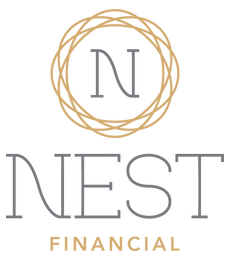While it’s completely acceptable to break out Mariah Carey’s Christmas Album on November 1st, we don’t want get too far ahead of ourselves. November kicks off the holidays with Thanksgiving, reminding us that gratitude is the true reason for the holiday season.
Giving thanks often leads to giving to others, just like the progression of the holidays from Thanksgiving to Christmas suggests. As we reflect and acknowledge all of the things in our lives we have to be grateful for, expressing that gratitude often encourages us to give back in the same way that we have received.
Austin is well-known for its robust entrepreneurial ecosystem, and while business climate and tax laws certainly play a role in that, we can also thank Austin’s unique culture and community. Here, everyone wants to see everyone else succeed, and we go out of our way to lift others up.
Considering that NEST Financial serves families, individuals, and businesses in Austin and the greater Hill Country area, we figured that this season marks a time when that community-minded spark is especially bright in our clients’ minds and hearts. That being said, if you find yourself inspired by gratitude to give to others, here are some things to keep in mind while making charitable donations.
Choosing A Recipient
Once you’ve identified a cause that is meaningful to you – whether it’s because you relate to it personally, or because you know people who have benefited from similar services, or any other reason – make sure that you do some research. Check ahead of time to see what kinds of help the organization needs and confirm that they will use your donation in a way that aligns with your values.
Another thing you will want to clear up while researching causes is whether the organizations you’ve flagged have been awarded tax-exempt status by the Federal government. Not-for-profit organizations engaged in charitable activities as well as nonprofit schools and hospitals, many churches and religious organizations, veterans’ groups, public parks, and recreational facilities are some examples of tax-exempt entities, and donating to these organizations means your contribution will be tax deductible. Search the organization you are interested in on the IRS’ website if you’re having a hard time finding out their status.
Many organizations are still recovering from the effects of the pandemic, which is true for businesses and individuals as well. However, in addition to supporting a worthy cause, your donations as an individual or business to approved organizations may help to lower your tax bill.
How Much To Give
Facor the amount you’d like to donate into your budget from the start. This way you build charitable giving into your cash flow, enabling you to give consistently without interrupting your usual spending and saving. It may even help you to be able to give more over time. But the question remains, how much should one donate?
As a business, there are certain rules to keep in mind when it comes to charitable giving. C corporations are limited to donating 25% of the business’ taxable income in most cases. Gifts distributed by sole proprietors, partners, and S corporation owners are considered personal charitable contributions and therefore do not count towards business deductions. These personal deduction amounts are also limited depending on the type of property donated and the organization receiving the gift. Currently individuals may deduct qualified contributions of up to 50-60% of their adjusted gross income.
Businesses are also able to donate inventory or overstock to charities, or make property donations. Contributing tangible property in the form of merchandise or other assets typically triggers a deduction in the amount of the property’s fair market value (i.e. the price a buyer would pay for it on the open market).
Some rules apply to business inventory donations and food donations as well, and vary depending on whether it’s a C Corporation or individual placing the donation. Be sure to check the most recent legislation around these rules, as the limits fluctuate frequently and depend on many factors, including the organization receiving the donation.
Receiving Documentation
However much you donate, be sure to request a written acknowledgment for any charitable donations over $250 in value. A canceled check or a contribution statement from the charity are common ways this documentation is provided, but ensure it has the amount received or a description of donation and the value of the goods or services.
If you receive something in exchange for a charitable gift (such as event tickets or an auction item), you are only permitted to deduct the amount of your contribution that exceeds the fair market value of the benefit received.
Other Forms of Giving
Beyond tax-deductible donations of gifts, some people or companies support nonprofits with sponsorship or cause-related marketing. These do not qualify for deductions, but may be able to be claimed as marketing expenses. Similarly some choose to volunteer, and while there is no way to claim volunteer hours or value of services as a deduction, sometimes it’s possible to deduct out-of-pocket expenses incurred during volunteering, such as mileage. Other options for businesses and larger donations (or a series of donations) include establishing a charitable trust or foundation.
Giving Thanks All Year Round
In the spirit of gratitude, donating to charitable organizations not only presents an opportunity to give thanks and help others, but it also creates a net positive for both the giver and the recipient by improving morale, bolstering the community, and generating more good in the world. This educational overview is just the tip of the iceberg rather than a comprehensive or detailed list of the ways that charitable giving can play a role in your financial planning process. The best way to make your donations create the most impact is by partnering with a professional.
If you’d like to examine your finances and determine the best way for you to incorporate charitable giving in a meaningful way, reach out to us at info@nestfinancial.net. We love Austin and the surrounding community and are eager to help individuals, families, and businesses manifest their financial goals, helping us all to thrive at the same time.
Find us on:
LinkedIn Facebook Yelp Twitter
DISCLAIMER: We are legally obligated to remind you that the information and opinions shared in this article are for educational purposes only and are not financial planning or investment advice. For guidance about your unique goals, drop us a line at info@nestfinancial.net.






[…] week we discussed a few ways to incorporate charitable giving into your financial planning, and in keeping with the spirit of the season we’d like to dive a […]